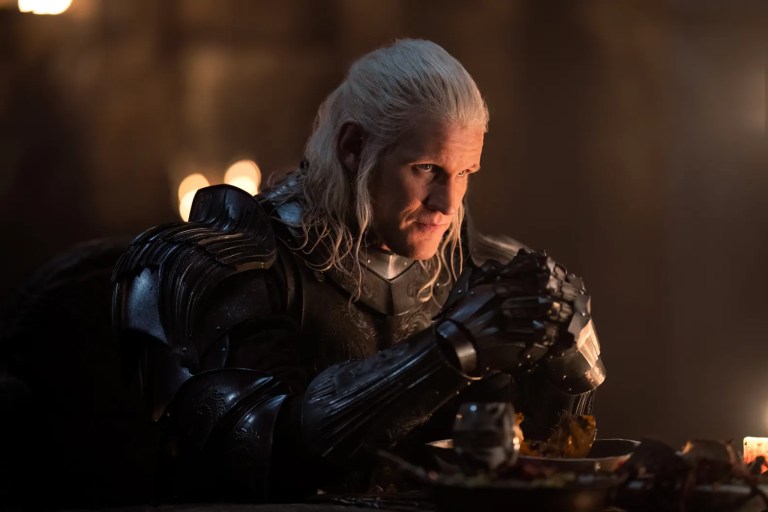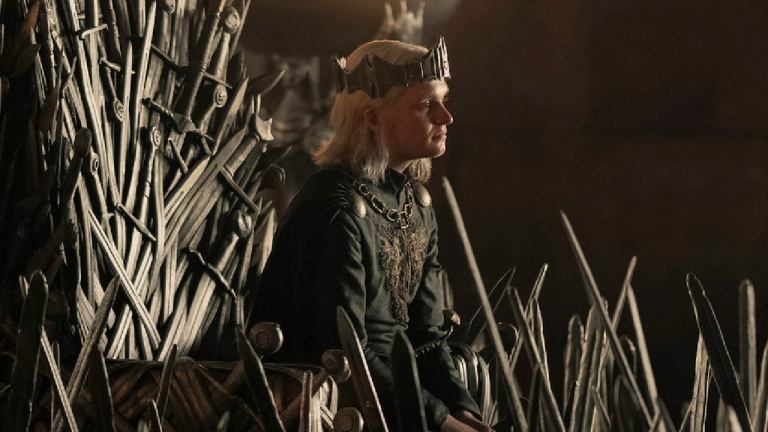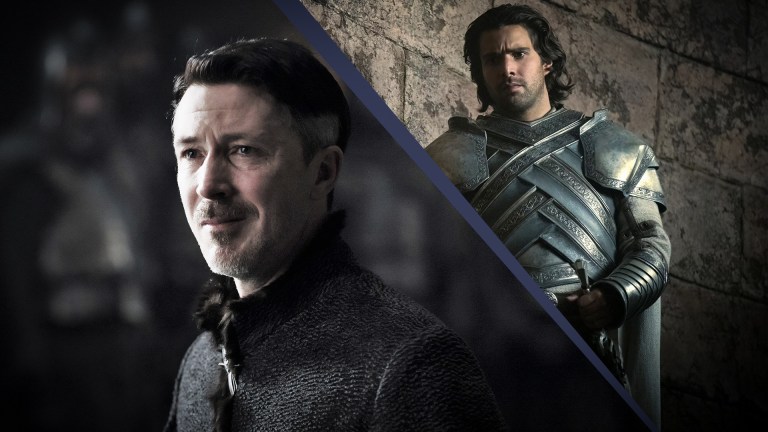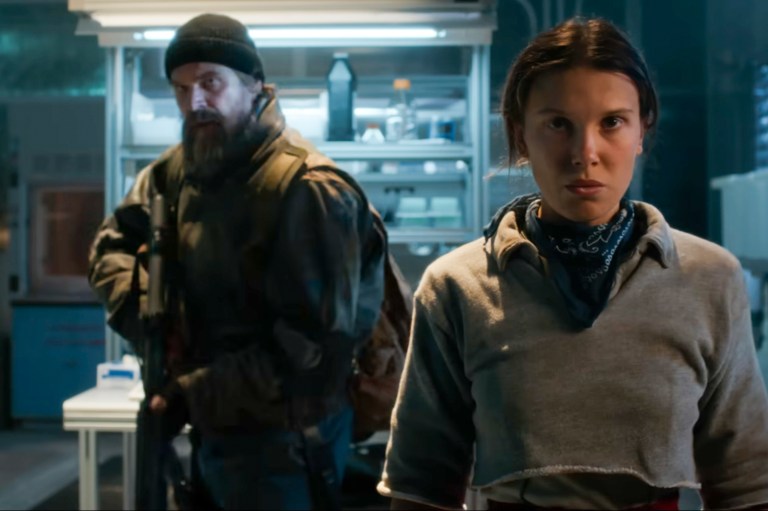
‘House of the Dragon’ Season 2 Episode 1 Proves Communication Is the Seven Kingdoms’ Greatest Problem
Today, we take a look at the newest episode of House of the Dragon Season 2. Is the new season as good as we hoped?
House of the Dragon Season 2 kicks off in shocking fashion, and proves how these characters’ greatest downfall is their inability to communicate.
In House of the Dragon and Game of Thrones, a rational person would assume that with multiple individuals named Aegon, Joffrey, and many derivatives of such names being awfully similar, people would be more clear in their communication. After all, it’s a touchy era where a simple misunderstanding could break out in wars where dragon’s fire and bloodshed reign. And that’s exactly what’s happened time and time again. Now, the latest series of miscommunications in Season 2 could really be what causes the dragon’s poop to hit the fan here.
Active listening sucks in the Seven Kingdoms
House of the Dragon Season 2’s first episode, “A Son for a Son,” showcases the simmering tension after the death of Lucerys (Elliot Grihault). Rhaenyra Targaryen (Emma D’Arcy) was already on edge after having the throne taken from her by Aegon Targaryen (Tom Glynn-Carney), and now her son is dead because of Aemond Targaryen (Ewan Mitchell). With the threat of all-out war looming in retaliation for Lucerys’ murder and a fight for who is the rightful ruler, Daemon Targaryen (Matt Smith) takes matters into his own hands and maneuvers his way in the shadows to encourage a few willing participants to kill Aemond. In essence, his reasoning is “a son for a son.” Well, the ratcatcher and his accomplice end up killing a son all right – Aegon’s infant son, Jaehaerys, whom they behead in brutal fashion.

Look, it’s unclear if they misunderstood the assignment, were deliberately obtuse to secure the coin on offer, or Daemon said something else to them off screen, but the point is this: This event causes the molten lava-level of conflict to completely boil over. Now, it’s passed the point of no return and this could have all been avoided if people actively listened or asked questions if instructions weren’t clear enough.
The biggest culprit here is Daemon who is as stubborn as his hair is white. Instead of trusting in Rhaenyra’s judgment – since she is the person who lost Lucerys and should decide how to handle the matter – he goes on his own mission, refusing to communicate and listen to what she wants. He’s acting in her honor, but he doesn’t think about honoring her wishes to begin with or the consequences his actions might bring with them. Also, if Aemond is the end goal here, maybe be a little more direct with the assassins about the target rather than speak in poetic riddles. This is murder – not Shakespeare – after all.
The whole first season of House of the Dragon is bad communication between people
Ambition proves to be the biggest danger to everyone in House of the Dragon. People hold their own agendas and are prepared to poison each other’s chalices to get closer to what they want. However, they don’t exactly help each other either by becoming information silos or refusing to address what needs to be discussed. Much like a toxic corporate culture, these people gossip in the corridors, present rumors as facts while massaging their manager’s feet (and ego), and never actually speak to one another about possible compromises or resolutions. Instead, these fools would rather duck and dodge fire-breathing dragons and let everyone die over misunderstandings or mishearings.
A classic case of this is Alicent Hightower’s (Olivia Cooke) misinterpretations of King Viserys Targaryen’s (Paddy Considine) recitation of Aegon the Conqueror’s dream. Rather than seek clarity about which Aegon this sickly man is prattling on about on his deathbed – especially knowing Viserys saw Rhaenyra as his successor – she just runs with it and thinks it must be about their son. Again, see the problem when everyone has the same name? Of course, there are those who would conveniently spin what Viserys said for their own intentions, but that doesn’t take away from the fact that Alicent could have had a conversation with Rhaenyra, whom she evidently respects, and actually unpack the situation. No, these people would rather go to war over a game of broken telephone. Without a shadow of a doubt, these are the type of individuals who would forward fake news because they read it on the internet so it must be true.
House of the Dragon continues the trend from Game of Thrones
The horrendous communication levels in House of the Dragon are no different from what’s presented in Game of Thrones. Although, one would think that maybe people would learn their lessons and not repeat the same mistakes in the future, but humans, right? Game of Thrones remains one miscommunication right after the other, as people refuse to use plain language among each other. No, they speak of three-eyed ravens and white walkers. For the love of Vhagar, why not just refer to them as mediums and zombies?!

The only people who win when communication sucks are bad actors like Little Finger (Aidan Gillen). They use the knowledge that no one speaks to each other to spread their own lies and peddle their own nonsense to get what they want – and people fall for it every single time. Hook, line, and sinker. Manipulative fiends thrive in the chaos and occupy the moments of silence that could be used to better understand the other person.
So, what can be done to fix this problem? Nothing. These characters’ lack of communication makes for entertaining television and the whole saga would be much shorter if they learned social skills. It’s not our fault that their ears are only accessories for their faces, so let’s reap the rewards.











